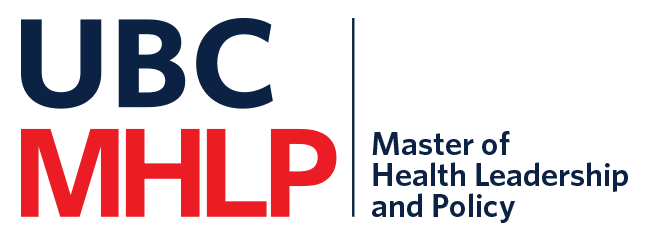What is leadership and management in health care?

Exceptional leadership and management in healthcare stem from having the interdisciplinary knowledge and skills needed to implement transformative approaches to the way health care is managed and delivered.
If you think of the health-care leaders and managers you most respect, you may notice that they share specific qualities. They have a wide-ranging understanding of multiple disciplines, appreciating the intersections of different systems and approaches to patient-centred care. They also excel in their abilities to communicate and in the emotional intelligence they bring to their work.
Great health-care leaders and managers are as adept in their understanding of policy as they are in the nuances of supporting individual team members through regular check-ins and feedback and keeping everyone accountable and on track.
They inspire others to innovate, do great things and achieve more than they thought possible.
Education is key to gaining health-care leadership and management skills
If you want to move into a health-care leadership or management position, you might need to develop some new skills. Your current professional role may have given you opportunities to stretch yourself as a leader, but just as you wouldn’t expect to understand the social determinants of health, philosophies of care, or evidence-based practice without investing in structured learning, so too is there value in taking the time to build and develop your leadership skills.
That’s where a master’s degree like the UBC Master of Health Leadership and Policy (MHLP) can play a pivotal role in your professional development. By investing the time to learn new knowledge, concepts and skills, you can return to the workforce with a new set of tools – and the credibility of a master’s degree from an internationally respected university – to advance in your field as a health-care leader or manager.
The MHLP in Clinical Education combines in-depth health-care education taught through the School of Nursing in the Faculty of Applied Science with business and leadership courses taught through UBC Sauder School of Business.
This integrated curriculum is crucial to your development as a health-care leader.
Opportunities to practice being a health-care leader
Like any skill, the best way to develop your leadership abilities is through a mix of learning, reflection and practice. As an MHLP student, you’ll be exploring theories of organizational management and leadership, and will be reviewing industry-relevant case studies in the business courses that make up 40 to 50 percent of the curriculum.
You’ll be working on projects where you will have opportunities to be both a group member and group leader, trying out different ways of communicating, managing projects and setting goals. Your classmates are students from a range of professional and personal backgrounds, giving you experience working with and leading diverse teams.
MHLP students have access to professional development opportunities throughout the year that reinforce the foundational leadership skills taught in classes. You are also expected to complete a career portfolio, which includes monthly reflections on what you are learning and encourages you to set professional and leadership goals.
Learning how to lead is as crucial to your professional success as being on top of the latest technological advances in your industry. As Ahmed Soltan, a 2021 MHLP student in Clinical Education shared:
“Leadership is not about being a manager. This course opened my eyes to the strategies true leaders use to inspire their team members to collaborate so they can work together to achieve an organization’s goals.”
Students graduate with newfound confidence in their skills. “Everyone in this program is so diverse and at different stages of their careers and lives,” reflects Margaret Lin, a 2021 MHLP student in Seniors Care.
“Many people who came to the program from frontline or bedside roles wondered if they were suitable for leadership positions, but the program gives you opportunities to build your confidence. Understand that it’s not a matter of how many years you’ve worked or where you have worked but the passion you bring to your role and your willingness to learn from others.”
Integrating your health care and business knowledge
“The knowledge our students obtain in the business courses taught through Sauder also plays an important role in their leadership development,” says Dr. Cheryl Segaric, Director of the MHLP in Clinical Education. “Learning about strategic planning, for example, enables students to get to the root of issues and then map out and develop workable strategies to implement innovative solutions…. As our students graduate and move into the next stage of their careers, I see incredible opportunities for them. There is such a profound need for both educators and leaders in health care, and they are well equipped to step into those positions – using their knowledge and their critical-thinking and communication skills to lead change.”
That ability to lead change is what makes a health-care leader. “In health care, leaders have to learn to step beyond their typical job description and work across boundaries,” says Justin Bull, Academic Director of the MHLP.
“While never forgetting the priority of a patient, leaders learn how to influence organizational constraints, build teams and scale best practices. Leadership means extending your view from the bedside to the broader operating reality, and learning how to effectively influence outcomes to support people, society and our planet.”
A credential that shows you have what it takes to be a health-care leader
A master’s degree is an important credential, signalling to potential employers that you are committed to lifelong learning and that you have proven your ability to think and work at a high level. A degree like the Master of Health Leadership and Policy shows that you are able to excel both technically and as a leader in your field.
Since our first cohort of students graduated in 2015, MHLP alumni have used the degree to excel in positions that required excellent healthcare leadership and management. The degree enabled them to advance in their professional career, giving them the confidence and credentials to be taken seriously for positions of responsibility and leadership.
Seniors Care
Move your career forward as a health-care specialist dedicated to improving patient outcomes and fostering the well-being of seniors.
Read MoreClinical Education
Develop the educational strategies and leadership skills to create caring, collaborative clinical environments.
Read MoreApplication Deadlines
The online application portal for the January 2025 has closed.
Get ready to apply!
Admissions for the 2026 intake will open on January 1, 2025.
How to ApplyJoin us for an
Info Session
Sign up for our latest online information sessions and discover what our programs have to offer.
Sign Up NowAssess your Eligibility
Determine if your professional experience and academic background make you a fit for your desired program.
Start AssessmentApplicant Guide
Navigate the application process with ease!
Sign up to receive tailored instructions and a detailed guide directly to your email.
Sign upFeatured Alumni

Ellison Chung
An emergency nurse clinician and nursing educator at BCIT, Ellison Chung chose the MHLP in Clinical Education to continue growing his skills as an educator and leader. He’s now working as a clinical education consultant with the Provincial Health Services Authority.
Featured Alumni

Justin Krzanowski
Justin Krzanowski is integrating the leadership and health-care knowledge he acquired over the course of his MHLP in Seniors Care to lead a team tasked with developing and implementing discharge policies and procedures from the acute care setting.




